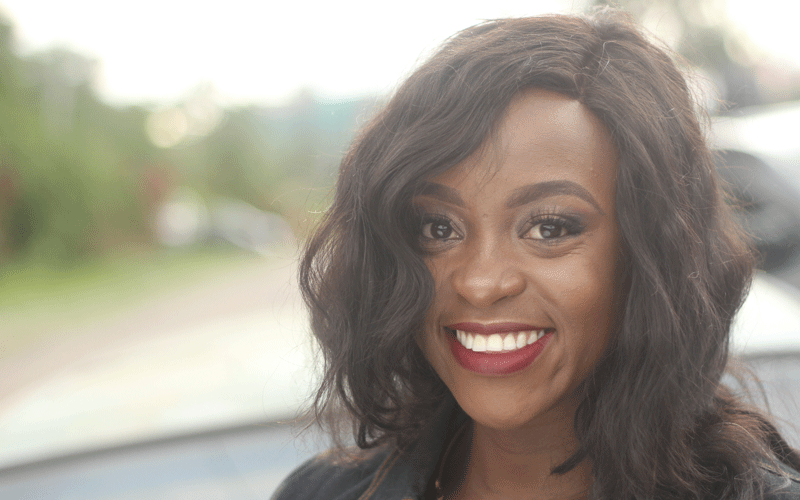Female producers taking the music and film industries by the horns

Behind some of Kenya’s great music and film productions is a number of women burning the midnight oil to pour in creative skills, time and experience. CYNTHIA MUKANZI talks to a few of them who thought-provokingly echo optimism in an imminent showbiz turnaround that’s making room for more women leadership
Unbeknown to many people, Viola Karuri was the first ever-female producer on the set of the non-competitive continental TV music show, Coke Studio Africa, in 2019.
It is an era where considerable progress had been made in the local showbiz industry and so to be talking of firsts that should have been news years ago, is quite sobering.
These women taking up lead positions in entertainment business unanimously demand and in their own ways, are paving way for balanced representation. Viola’s role on the show was a promising step in the right direction.
“It was great to be able to work with talented artistes who I probably wouldn’t get to work with in my lifetime, all on one platform.
The show was also an amazing opportunity to mentor (albeit from a distance) young girls who would otherwise not see production as a career path for them, since it’s male dominated,” says Viola.
The singer and songwriter honed her talent at Berklee College of Music where she was trained as an all-round artiste who now mines her craft with comprehension of the creative economy and makes a living off it.
Packing skills and competency needed in this sector that tends to be notoriously unfavourable to women is imperative.
“Since I’m a singer and songwriter, I’m uniquely placed to work with other artistes in ensuring the best possible output of vocals in their recordings.
So, when I produce, I work as a vocal producer and recording engineer,” she says. And her primary being a singer, Viola earns a living from it as well as songwriting.
The RedLily Entertainment owner also produces concerts and content for TV under this entity.
The gender question
There is a pool of talent to draw from in music female producers that continues to be overshadowed by their male peers.
This, Viola says, is a worldwide issue stemming from the general portrayal of women as non-technical, but as singers, dancers or models/vixens.
Parity in representation in the industry has to be intentional where their prowess is sought without making women’s presence a tokenising one. 
The producer says until they reach a critical mass, the best way to take up space and prove their viability is by putting oneself out there and taking on more projects that bring in more work.
She says, “But when you happen to be tokenised, make sure your work is up to par with everyone else’s, if not better; that way, next time you’ll be invited as a professional and not a token.”
Music and film are not entirely on adverse tangents and that’s why both industries hold similarities.
Film producer, director and scriptwriter Jennifer Gatero’s sentiments on navigating this sector bear resemblance to Viola’s.
Jennifer is the founder of Avant Films, a production company born out of the desire to tell stories creatively while exploring the freedom that comes with being an independent filmmaker in spite of the challenges that accompany it.
She acknowledges the notable growth in the film sector, but also shudders at how deeply embedded sexism is in the industry.
“The TV and film industry in Kenya is male-dominated. A lot of executive producers, technical crews, content managers and buyers are male.
So, if you are not assertive enough, it would be easy for you to get lost in it and fail to achieve what you want.
You have to work twice as hard to make it to the top and draw the line when dealing with men,” she tells Spice.
She changed the course of her career when she decided to pursue film after successfully writing and pitching a show, Better Days, to a local TV channel.
She was already in college pursuing a Bachelor of Commerce degree when she halted that for the Mohammed Amin Foundation film school.
Getting this nod from a prominent TV executive producer was a life-changing validation for the filmmaker.
With Avant Films, she has continued to create motion pictures and three of her notable ones are This Is Life, Best Friends Forever and Granted.
In 2015, Granted scooped the Best Short Film award at Silicon Valley Film Festival. This Is Life had financial demands that couldn’t be met for its second instalment and was shelved.
“But the fact that we rolled it out and it came out as well as it did showed me that it’s just a matter of time and working harder and we will get what we need to meet our goals,” says the filmmaker.
Avant Films is currently working on their first movie whose production is about to commence.
Curtailing creative freedom
Jennifer says that selling content to mainstream TV executive producers, who are largely male, can be difficult. 
Apparently, they believe they know what the Kenyan audience wants and they may try to dictate certain aspects of a film, consequently curtailing creative freedom.
And this frustration is a reality faced by all filmmakers. While the industry is not sufficiently rewarding, the director still finds fulfilment in being an African storyteller.
She is positive that with consistency and hard work, the reels of fortune will roll in her favour.
The producer is confident and anticipates the multiplication of women as directors, producers and technical crew in film.
“Those of us already in the industry must encourage and mentor upcoming filmmakers,” she notes.
Old Gold Films founder, Alice Kombani concurs with Jennifer’s sentiments. She sees a lot of women come up and says there are already many of them making outstanding content.
Some of the films produced by women in 2019 are Pillowtalk, Subira, Plan B and Mid-Life Crisis.
Alice got into production mainly because she couldn’t find someone to rally behind her projects.
Her debut production Angles of My Face, a 2014 short film, was applauded at the Kenyatta University Cultural Week Festival that year with six awards.
Afterwards, her first feature film Have Nots saw her gain recognition as an upcoming producer at the UN Habitat Festival.
She aspires to generate great productions that will carry their own weight and sell themselves.
“I’m making sure my product is good and attracts more projects. After my feature premiere, I got two executive producers who were willing to put money into my productions. That means my work has irrefutable value,” she says.
And yet, even with an impressive track record, the producer has encountered appalling treatment while in pursuance of her dreams.
She has been forced to ask a male friend to accompany her to meetings to smoothen things.
“With production, you have to talk to people or institutions to sell your vision, and make them understand what you are all about. It could be trying to acquire a location.
And sometimes it happens that men own everything such as houses and shops. Some will be willing to offer services, but also have a demeaning attitude towards you.
It is something I have experienced. Being a woman in this industry means you have to work extra hard to be believable,” she says.
She faults these behaviour on patriarchy, which emboldens men’s arrogance in believing they should be handed bigger roles, even those they haven’t toiled for.
Alice’s dream is to make a movie with an all-female crew to show women that it is possible. Another hindrance that’s slowing down her productions is financial insufficiency.
Lack of support
She is, therefore, picking productions that she can sustain. According to her, the government and other institutions created to amplify the industry’s potency have failed to provide meaningful support and this has stunted its growth.
Her ultimate vision is to be able to tell stories on the silver screen in an open-air setting where people can gather to socialise.
Through an organisation called Sinema, her team places screens in open spaces for people to watch films and mingle and it is an avenue she envisions to build on. 
As a producer, Alice understands the importance of fully catering to her actors’ needs while noting the overwhelming talent that exists.
“I am making sure my actors are comfortable; that means taking care of their accommodation, transport and more.
Little pay; I can’t say that we are remunerating them the way the industry should but we need to make them comfortable for them to put in the best,” she says adding that she is creating room for mentorship this year and aims to create three movies in 2020.
Film producer Winnie Adisa’s views chime with most of her peers concerns. “For sure it is tougher for women to gain respect in the industry.
We have to work twice as hard to make sure what we do is impeccable,” she states.
Her first ever solo film project, a two-part show dubbed Martin’s Chronicles and Susan’s Diary are slated for release soon.
The Absolute Image Ltd co-founder has collaborated with other producers such as Jennifer Gatero in filmmaking.
Her entry into film took off with the drama series Changing Times (Season 1) where she was an editor.
Winnie says the number of female producers has grown over the last few years. “We are all working together to help each other grow and do great things. In my opinion, most men take up directorial roles.
When a show becomes a success, emphasis is normally given to the director and not the producer,” she says.
She points to policymakers whom she dares to encourage to make investments in female driven productions to ensure women have access to the same opportunities as the men.
She is blown away by the stories Kenyans have to tell and the hunger from audiences who want relatable content.
Not enough investment
But the coyness of stakeholders leads to snubbing of local productions, which they deem too expensive to invest in.
Winnie expresses her disappointment when it comes to film licensing, which demands debilitating fees that restrict storytelling.
“We are being confined in a box and are not allowed to speak our truth. When we tell such stories, our movies are banned or the owner of the content faces some sort of danger and has to go in hiding.
Yet it is okay to consume such content from Hollywood. It makes no sense,” she says.
She is looking at producing content that resonates with the global audience and intends to take her motion pictures to Netflix.
To her, the film industry is layered and competitive, but has room for everyone who wants to be part of the creative space. “I have found my niche and plan to run with it,” she says.
The concurrence in these voices unveil creatives working towards a common goal; to have a fair chance where people no longer question women’s importance in the creative economy.
This would only benefit female music creators and filmmakers, but would also enrich the local showbiz industry as a whole.


